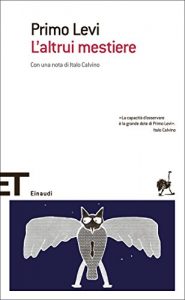I 99eBooks è una directory di eBook. Cerchiamo e classificato intorno alle eBooks Web per te!
Tutti i diritti riservati. I libri e libri elettronici sono di proprietà dei rispettivi proprietari.
Double Double (English Edition)
The idea of the Double is one familiar to people interested in psychology, mythology, literature, and art. It stems from the simple fact that we as humans wonder if there might be, or is indeed, someone who is very much like us.
Today the term Double or Doppelgänger (literally Double-goer) is often used to refer to a person who simply looks like another. This, however, is only a pale shadow of what the terms signifies to writers, artists, and other intellectuals. For them it refers to the idea that if one meets one’s Double, it will bring about ill-luck or even death. Perhaps the most famous example of this was the poet Percy Bysshe Shelley’s claim to have met his own Double shortly before he died in 1822.
In recent times, we have seen numerous examples of the Double in popular culture. In movies such as The Nutty Professor, we see the nerdy Sherman Klump (originally Jerry Lewis’s character Julius Kelp transformed into the suave Buddy Love, and in Spider-Man 3, we see Spider-Man wrestle with his conscience when he is transformed into the Dark Spider-Man. Likewise, television brings us countless examples, including Star Trek’s Captain Kirk who meets up with darker versions of himself in the episodes titled Enemy Within and Mirror Mirror, Bewitched’s Samantha Stevens who is sometimes pitted against her freewheeling cousin Serena, and Seinfeld’s own character of Jerry Seinfeld’s who meets a woman, Melanie, who is so much like himself that he asks her to marry him. Though most of these doublings are light-hearted, they attest to the enduring power of the idea.
In this edition are included six of the most famous works of Doubles in literature, each written by an author who is among the best the world has known:
•The Secret Sharer by Joseph Conrad
•William Wilson by Edgar Allan Poe
•Bartleby, the Scrivener by Herman Melville
•The Jolly Corner by Henry James
•The Book of the Duchess by Geoffrey Chaucer
•The Double by Fyodor Dostoyevsky
Also included is a short story by contemporary author Peter Salvia entitled Double Double.
This book is published by The Rosebud Press, which is part of The Primavera Press.
Today the term Double or Doppelgänger (literally Double-goer) is often used to refer to a person who simply looks like another. This, however, is only a pale shadow of what the terms signifies to writers, artists, and other intellectuals. For them it refers to the idea that if one meets one’s Double, it will bring about ill-luck or even death. Perhaps the most famous example of this was the poet Percy Bysshe Shelley’s claim to have met his own Double shortly before he died in 1822.
In recent times, we have seen numerous examples of the Double in popular culture. In movies such as The Nutty Professor, we see the nerdy Sherman Klump (originally Jerry Lewis’s character Julius Kelp transformed into the suave Buddy Love, and in Spider-Man 3, we see Spider-Man wrestle with his conscience when he is transformed into the Dark Spider-Man. Likewise, television brings us countless examples, including Star Trek’s Captain Kirk who meets up with darker versions of himself in the episodes titled Enemy Within and Mirror Mirror, Bewitched’s Samantha Stevens who is sometimes pitted against her freewheeling cousin Serena, and Seinfeld’s own character of Jerry Seinfeld’s who meets a woman, Melanie, who is so much like himself that he asks her to marry him. Though most of these doublings are light-hearted, they attest to the enduring power of the idea.
In this edition are included six of the most famous works of Doubles in literature, each written by an author who is among the best the world has known:
•The Secret Sharer by Joseph Conrad
•William Wilson by Edgar Allan Poe
•Bartleby, the Scrivener by Herman Melville
•The Jolly Corner by Henry James
•The Book of the Duchess by Geoffrey Chaucer
•The Double by Fyodor Dostoyevsky
Also included is a short story by contemporary author Peter Salvia entitled Double Double.
This book is published by The Rosebud Press, which is part of The Primavera Press.

















